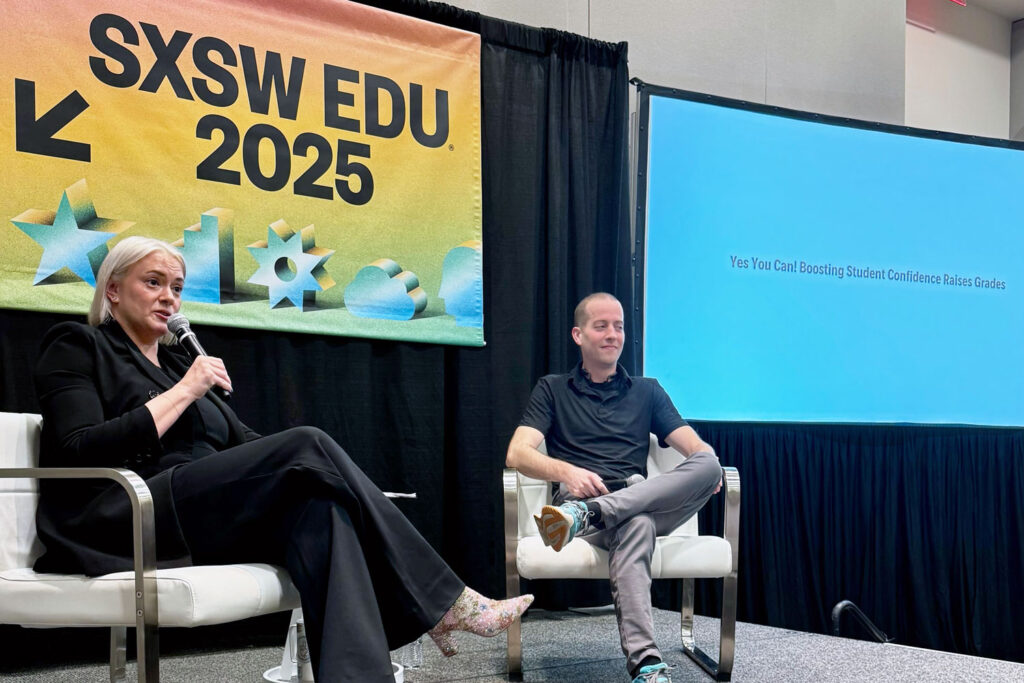
CAI team highlights research into student confidence at SXSW EDU
Sean Corp, Communications Lead
Educational researchers from the Center for Academic Innovation presented their findings at SXSW EDU on how student confidence affects academic performance, highlighting innovative interventions that improve success rates.
Behavioral scientist Kate Barr and educational data scientist Mark Mills shared research on the impact of student confidence on grades. Their study found that confidence—more than motivation—plays a critical role in student success. Based on this research, the center created the Confidence Playbook, an intervention designed to strengthen students’ belief in their abilities through targeted strategies.
“We initially thought increasing motivation would improve performance, but what we found was that confidence is the real driver of success,” Barr said.
The Confidence Playbook provides structured exercises to help students identify confidence barriers, develop strategies to overcome them, and counter negative self-talk.
The study identified four key factors influencing student confidence: past academic successes, encouragement from peers and instructors, observations of others’ success, and the ability to manage anxiety. Students who participated in the Confidence Playbook, particularly in math courses, showed improved exam scores compared to those who did not.
The researchers highlighted several strategies and interventions instructors can use to instill confidence in their students. These include setting up structured peer interactions, designing low-stakes assessments early in a course, and emphasizing a growth mindset in students.
“It is important to acknowledge the importance of instilling confidence in students. By factoring that into course design and your plan to interact with your students, there are several ways to increase confidence and help students be successful,” Mills said.
Another presentation from the center at SXSW EDU explored the role of social persuasion in student confidence. Vibha Vempala, a 2024 student fellow at the center and graduate student in engineering education research, discussed the gender differences in how students receive encouragement. Women reported gaining confidence from peer support, while men relied on instructors or family members more often.
Vempala said it is important to identify sources of confidence for various student populations because students with higher confidence are more likely to persist through challenges, take academic risks, and achieve better results.
The study also explored E-Coach, a web-based platform that sends students personalized academic support and encouragement. The platform uses behavioral science techniques to remind students about assignments, encourage study habits, and reinforce confidence through tailored messages.
“We found that small, intentional nudges can positively influence student engagement and success,” Vempala said.
According to Vempala, the personalization offered by ECoach is essential because specific, individualized feedback recognizing a student’s unique strengths or contributions is more effective than generic encouragement messages.
Both presentations underscored the importance of integrating confidence-building strategies into education.
“Creating a classroom culture where students recognize and support each other’s achievements can increase both confidence and academic persistence,” Barr said.
The findings add to growing research on how non-academic factors, such as self-belief and social support, can shape student performance in higher education.


